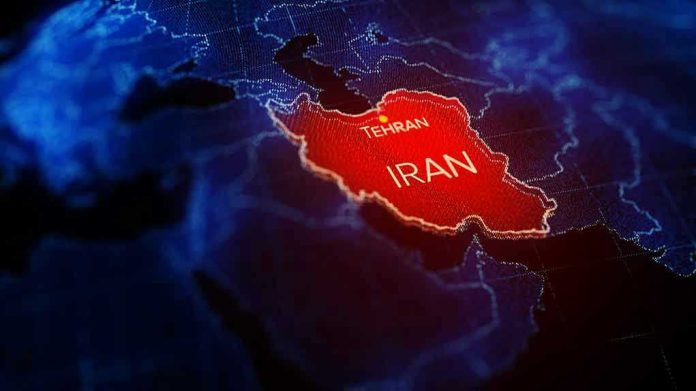
British authorities are sounding the alarm over a skyrocketing Iranian threat on UK soil, as Parliament’s top intelligence watchdog reveals at least 15 assassination and abduction plots since 2022—even as government response remains mired in old habits and wishful thinking.
At a Glance
- UK intelligence confirms a dramatic increase in Iranian plots targeting dissidents, journalists, and Jewish/Israeli communities across Britain.
- Parliament’s report exposes at least 15 assassination or kidnapping attempts since 2022, blaming a crisis-driven and inadequate government response.
- Iranian regime uses proxies and criminal networks to mask its hand, making detection and prosecution difficult.
- Calls mount for tougher action, including proscribing Iran’s Islamic Revolutionary Guard Corps as a terrorist organization.
Parliament Watchdog: Iranian Plots Surge While Officials Relive Yesterday’s Battles
Intelligence and Security Committee members, not exactly known for hyperbole, have put it bluntly: Iran’s threat to the UK has “significantly increased” over the past two years. The report, the result of a two-year investigation, documents a series of at least 15 assassination or kidnapping plots orchestrated by Tehran’s operatives since 2022. The targets: critics of the mullahs’ regime, journalists reporting the truth, and—predictably—Jewish and Israeli interests, right here in the UK. It’s not new for Iran to export its brand of repression to foreign capitals, but the scale, frequency, and brazenness of these plots is unprecedented on British soil.
Here’s the kicker: while the government still fixates on Iran’s nuclear ambitions, the regime’s hired hands—proxies, cyber mercenaries, and criminal muscle—have been fanning out across London and beyond, tracking exiles and critics. The UK’s focus, says the Committee, is hopelessly outdated—stuck on crisis management and nuclear deals, while the Iranian threat machine operates in real time. At least one high-profile attack already made headlines: the stabbing of an Iran International journalist in London, with suspects now awaiting extradition. But behind the scenes, dozens more plots have been disrupted or uncovered, and authorities admit they’re only scratching the surface.
Regime Tactics: Denial, Deniability, and Proxy Warfare
Iran’s intelligence services don’t just deny everything—they outsource the dirty work. The Committee’s report details how Tehran leans on criminal gangs, cyber units, and so-called “third-party actors” for plausible deniability. These cutouts make it harder for British police and MI5 to attribute attacks directly, let alone prosecute those responsible. It’s a page straight out of the authoritarian playbook: keep the world guessing, threaten your enemies wherever they hide, and hope the West is too distracted or divided to push back. The UK, for its part, has sanctioned over 500 Iranian individuals and nearly 1,200 entities, but even Parliament’s own oversight body questions whether these measures are more symbolic than effective.
Diplomatic gamesmanship is the order of the day. Iran’s embassy in London issues blanket denials, all while the regime’s operatives compile lists and track movements of exiles, journalists, and anyone else who dares speak out. The chilling effect is real. Iranian diaspora communities, as well as Jewish and Israeli organizations, have ramped up security. Media outlets—especially those broadcasting in Persian—now operate under siege conditions. Meanwhile, frontline police and intelligence services are under pressure to adapt to threats that don’t fit the old templates of international espionage or terrorism. British authorities have started placing Iran in the highest tier of foreign influence scrutiny, but critics say these steps are years overdue.
Government Paralysis and the Call for Real Action
Here’s where the irony bites hardest. The ISC’s report lambastes the government’s “crisis management” approach, which prioritizes damage control over prevention. By focusing overwhelmingly on nuclear negotiations and diplomatic niceties, Whitehall has left itself playing catch-up as Iranian agents stalk the streets of London. The Committee urges a more comprehensive strategy, including consideration of designating the Islamic Revolutionary Guards Corps (IRGC) as a terrorist organization—a move that has strong support among lawmakers but is still “under review” in government circles. As if the evidence isn’t overwhelming enough.
What does all this mean for ordinary Britons? First, a sobering reminder that foreign regimes can and will reach into Western societies to silence dissent and punish critics. Second, the growing sense that Britain’s institutions, for all their tradition and bureaucracy, are simply not set up to deal with the sort of persistent, state-sponsored intimidation that is now routine from Tehran. The implications go beyond just the safety of exiles; they strike at the heart of free expression, the rule of law, and the basic expectation that the UK government will put its own citizens first—not the sensitivities of a hostile regime thousands of miles away.







